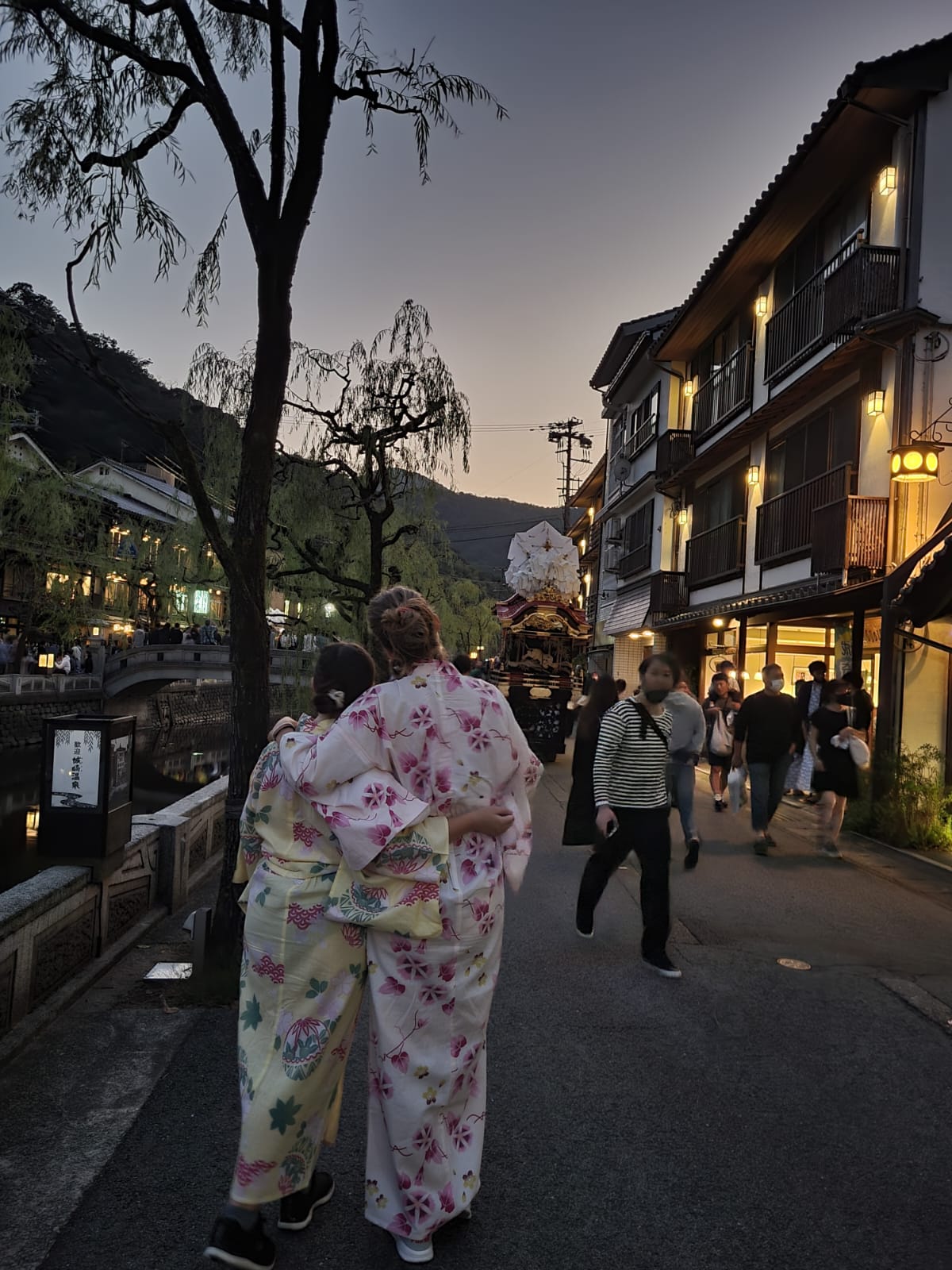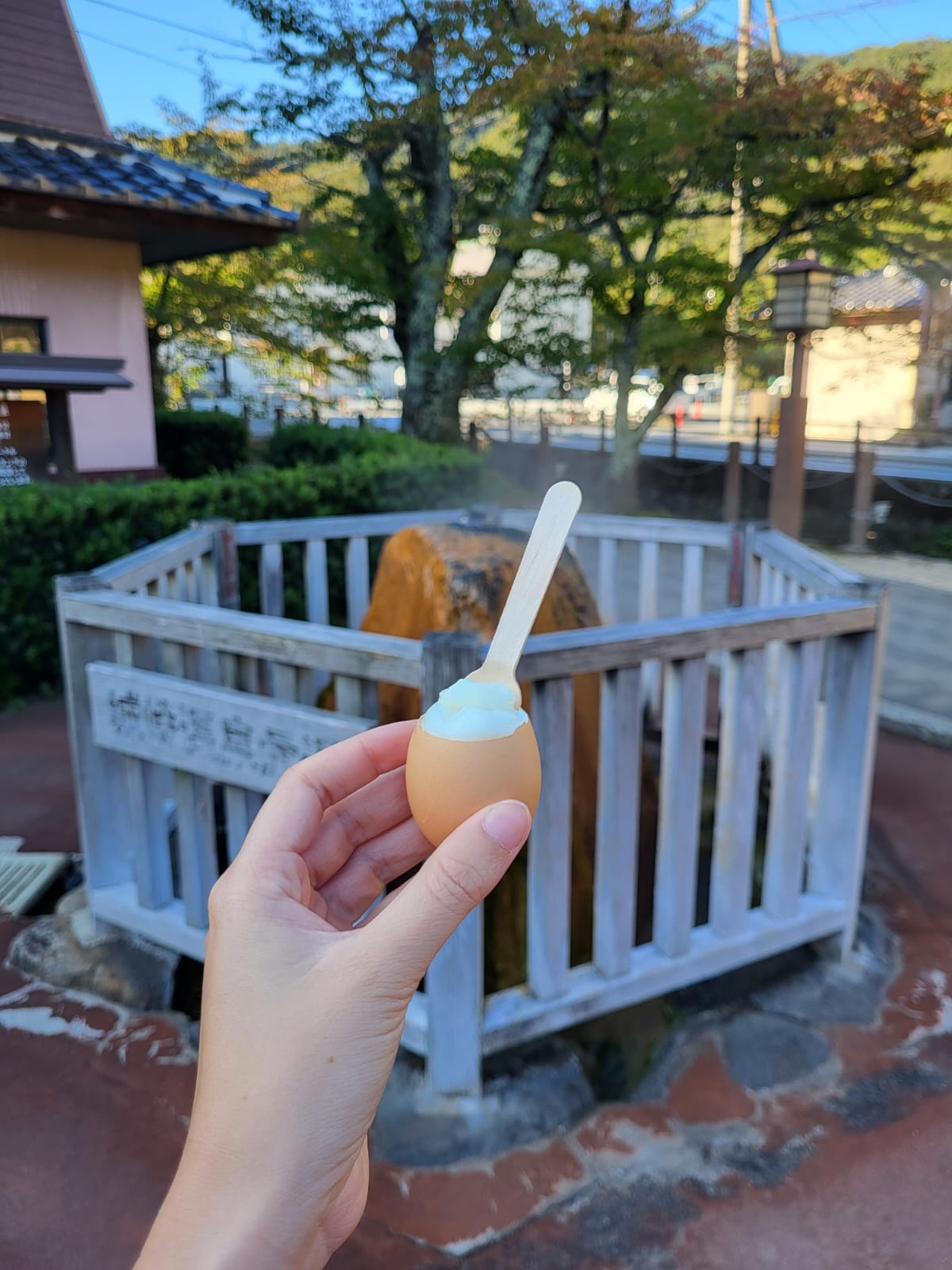
For This Reason, I Overcame My Fear – and Ate a Boiled Egg (Kinosaki Onsen, Part 2)
Hola,
¿Cómo estás?
Today’s opening sponsor is Maider. Thank you very much for your contribution.
I left the last post on a cliffhanger; I am so sorry. However, I think that sometimes it is good for me and others to have questions thrown in our faces without any insight to other possible answers just to keep the brain working.
We finally arrived at Kinosaki Onsen at 11am. The location was truly countryside, seen through the short train platform and the lack of automatic gate controls. The gate keeper ticked our tickets and let us through to the town. Kinosaki is known to have seven mystical onsens, each representing a different prayer to the local deities (such as love, marriage, prosperity, and so forth). The town gave off a very traditional air; the buildings were old, the dining options purely Japanese, and cherry blossom trees lined up next to the river. It was magnificent. Although I was excited to go out and explore, I was equally nervous. I have never been to an onsen.
Five years ago, when I first visited Japan, I learned of the ‘onsen’ tradition of bathing together in a hot spring, but everyone is naked. This idea is very different with my upbringing, and as a novice 18-year-old traveler, I was unwilling to try it out. Many have invited me to go with them before, and I strictly refused each time. I did not like seeing naked bodies, I did not like seeing together at once, and I especially did not want anyone to see my naked.
So why did I even go on the trip to begin with? First, I wanted to hang out with my friends, so that would be the peer pressure working. Second, I felt like I missed out when I left Japan the first time and did not want to feel like that again. And finally, it served as an answer to my question to the last post.
Being a cultural representative in a different country is a real and frightening thing. Whether you like it or not, and whether it is correct to do so, your actions represent a different person’s perception of others like you. Thus, it is wise to try and act respectfully towards others so they can start a relationship on the right foot with others. In other words, your actions help determine other people’s future relationships. However, there is a different between respect and identity. Respect can come in different forms and does not have to restrict your personality. I do not think that it is still necessary to wear masks in class, but to respect the rules of the school and the health of others, I do so. I understand that my actions can affect another person’s well-being. But if occasionally you choose to respect your own well-being, that is not a crime. For this reason, I decided to go to the onsen. I believe that if I continued to refuse to go into the onsen because of my own fears, that would be the worst type of disrespect towards I could have towards a culture.
The onsen experience was awesome. To be honest, I am still uneasy with going to the public bath with others. I still am not completely comfortable with other people’s naked bodies. But I would not cringe if I heard someone else talking about it. And I would go again with my friends.
But the best part was definitely the onsen egg.

